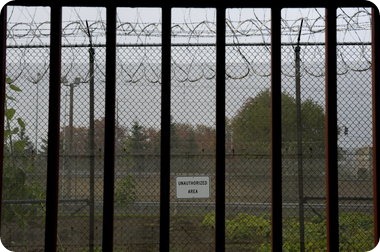There is one class of offender that is often considered worse than all the others combined, although that is rarely the case. Because of that, they have been targeted with legislation that has become progressively more draconian over time.
…Every year, on their birthdays, registrants are required to go to the police department and re-register. They must update their picture and residential information that will appear on the website and address any other concerns. Throughout the year, Emily keeps a folder documenting all the places she goes and the permission she obtained to go there: to her weekly Bible study group; parent-teacher meetings and so on. When she makes her birthday trip to the police department, she must take this folder with her.
Eugene Porter, a therapist who has worked with convicted sex offenders and male child victims of sexual abuse since 1984, describes this annual ritual as a “powerful shaming structure.”
And what about the shamers? Criminologist and professor Chrysanthi Leon remarked that the public spectacle of these hyper-restrictive laws is a “crucial way of signaling that we’re doing something about sexual violence, when in reality we’re doing very little.”
Tom Tobin, a psychologist by training and currently serving as the vice-chair of the California Sex Offender Management Board, carefully acknowledges the unique trauma experienced by a victim of a sexual crime, but questions whether concern for this lasting emotional damage is what fuels our current handling of such crimes.
“I think there’s something more primitive," he says. "There’s something about human sexuality that engages some part of everyone so that if we can identify this group who can be the ‘bad ones’ around human sexuality, or the exercise of it, than maybe it lets the rest of us off the hook. We can be sexist, anti-woman; we can make our own behaviors acceptable because it’s the sex offenders who are violating peoples’ rights. I think there’s something deeper and more profound going on that makes it difficult for people to respond in a thoughtful way.”
When Eugene Porter reflects on the experiences he has witnessed and treated over the course of his three-decade career, he conveys an authority over and insight into a subject of which he nevertheless insists we must “acknowledge the level of our own ignorance.”
“Being a sex offender is the worst stigma—maybe after 9/11, being a terrorist is as bad,” Porter asserts.
It is not uncommon to hear people who work in this field employ the metaphor of terrorist to describe how the criminal justice system has come to treat and portray sex offenders. Both specters have been ascribed a set of behaviors and placed on a continuum of threat to a vulnerable society. Wherever one falls on that continuum, there is an assumption that forward progression on it is inevitable.
With the logic of a continuum, on which offenders are interminably placed, a justification emerges for a permanent registry that treats all offenders of crimes involving sexual arousal or genitalia as essentially the same. Our attachment to a powerful system that confines and separates thousands of individuals, making pariahs of them all , reveals for whom these shaming rituals and spectacles provide a soothing salve: it’s for those of us not on the list.
Charlotte Silver is an independent journalist currently based in San Francisco. She writes for Al Jazeera English, Inter Press Service, Truthout, The Electronic Intifada and other publications. Follow her on Twitter @CharESilver… [emphasis added]
Inserted from <Alternet>
This is just the last section of an extensive article that covers the subject in depth. I urge you to click through to
I became aware of this article through a newsletter from CURE National:
CURE is one of the very few organizations out there who will advocate for those most marginalized by society. The topic of sex offenders is treated by many as the third rail of politics. As a result, we have watched as those who are convicted of even the most inoffensive or understandable legal transgressions – often while they were still in their teenage years or as even quite young juveniles – are made to suffer the most draconian sentences. In some cases, young people whose only offense was with another consenting adolescent while they were still minors themselves can be locked away indefinitely in psychiatric facilities under prison-like conditions merely because the state argues they might commit a future sexual crime if they are released. Kansas University Law School professor Corey Yung wrote in the Journal of Criminal Law and Criminology comparing civil commitment to Guantanamo Bay, and arguing that in many ways the civil commitment prisoners are worse off…
They deserve thanks for their willingness to oppose the trend.
 A prison is a trap for catching time. Good reporting appears often about the inner life of the American prison, but the catch is that American prison life is mostly undramatic—the reported stories fail to grab us, because, for the most part, nothing happens. One day in the life of Ivan Denisovich is all you need to know about Ivan Denisovich, because the idea that anyone could live for a minute in such circumstances seems impossible; one day in the life of an American prison means much less, because the force of it is that one day typically stretches out for decades. It isn’t the horror of the time at hand but the unimaginable sameness of the time ahead that makes prisons unendurable for their inmates. The inmates on death row in Texas are called men in “timeless time,” because they alone aren’t serving time: they aren’t waiting out five years or a decade or a lifetime. The basic reality of American prisons is not that of the lock and key but that of the lock and clock.
A prison is a trap for catching time. Good reporting appears often about the inner life of the American prison, but the catch is that American prison life is mostly undramatic—the reported stories fail to grab us, because, for the most part, nothing happens. One day in the life of Ivan Denisovich is all you need to know about Ivan Denisovich, because the idea that anyone could live for a minute in such circumstances seems impossible; one day in the life of an American prison means much less, because the force of it is that one day typically stretches out for decades. It isn’t the horror of the time at hand but the unimaginable sameness of the time ahead that makes prisons unendurable for their inmates. The inmates on death row in Texas are called men in “timeless time,” because they alone aren’t serving time: they aren’t waiting out five years or a decade or a lifetime. The basic reality of American prisons is not that of the lock and key but that of the lock and clock. A few years ago, Dunkin’ Donuts manager Luke Halloran had some tough jobs to fill at a store he ran in one of Chicago’s sketchiest areas. It had been robbed several times, a body had been found in a nearby trash container, and employees hired locally enjoyed giving away the store’s products to their friends.
A few years ago, Dunkin’ Donuts manager Luke Halloran had some tough jobs to fill at a store he ran in one of Chicago’s sketchiest areas. It had been robbed several times, a body had been found in a nearby trash container, and employees hired locally enjoyed giving away the store’s products to their friends. Gov. John Kitzhaber announced today that he is halting the scheduled Dec. 6 execution of Gary Haugen and won’t allow any executions to occur while he is governor.
Gov. John Kitzhaber announced today that he is halting the scheduled Dec. 6 execution of Gary Haugen and won’t allow any executions to occur while he is governor. The district attorneys of Multnomah, Washington and Clackamas counties recently dropped by to complain that we’ve been awfully critical of public-safety policies that have, after all, seen crime plunge to the lowest level in 40 years.
The district attorneys of Multnomah, Washington and Clackamas counties recently dropped by to complain that we’ve been awfully critical of public-safety policies that have, after all, seen crime plunge to the lowest level in 40 years.